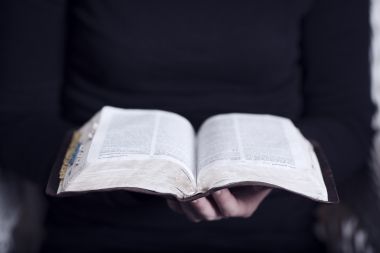Proposed religious discrimination laws proving unpopular in Australia

Queensland's Labor state government has signalled that it may be preparing to walk back its hardline position on religious discrimination law amendments as it faces an increasingly difficult battle to retain power in the upcoming state election.
With sources indicating there is a growing feeling with the party that it cannot afford to be drawn into "a fight with the churches" before the state election, senior figures like Queensland Attorney-General Yvette D'Ath have begun a push to drop parts of the draft legislation that have attracted fierce opposition from faith groups and religious organisations.
The most controversial of the changes, the removal of a "genuine occupational requirement" clause that protected the right of faith-based schools to take religious belief into account when hiring or firing staff, had raised concerns that it would undermine the ability of schools to provide education that aligned with their core values.
This would constitute a significant reversal of the party's original position, announced in April 2023, when it committed in principle to passing legislation to implement all 122 recommendations from the Queensland Human Rights Commission's review of the act before the next election.
The willingness to find a compromise position that will defuse some of the most hostile attacks on the government reflects both their weakened electoral position, having gone through a change in leadership and a number of damaging public outcries over issues like youth crime and health care, and the increasing public debate around the issue of religious discrimination on a national level.
The draft legislation has already attracted condemnation from religious groups, with faith leaders representing Christian, Jewish, and Islamic traditions joining together in writing a public letter labelling the proposed changes the "most restrictive" in the nation.
"The draft legislation, as it stands, would undermine fundamental human rights, and would be a betrayal of all faith communities in Queensland," it read.
"We believe the proposed exceptions should be reframed to continue the exemption for faith bodies, including faith schools, whilst clarifying that it is for protecting the freedom to manifest religion or belief, individually or in community with others.
"This includes the right to worship, observe, practice, teach, and enable a parent's right to choose a school that conforms with their faith and moral convictions."
The Queensland premier, Stephen Miles, had initially tried to downplay the significance of the criticism, saying he did "appreciate the effort" taken to outline their concerns, but deferring any further comment to Industrial Relations Minister Grace Grace, who rejected the suggestion that the amendments went too far.
"Well, I'm not sure whether that's necessarily the case," she said. "Obviously our proposals are about making sure that no one is treated discriminately.
"I guess there was specific issues that faith-based leaders have taken issue with but we think everyone deserves to be treated with respect and to not be discriminated against."
Despite the public messaging, the strength and speed of the reaction from religious groups clearly has some in the government concerned, with Queensland Attorney-General, Yvette D'Ath, securing the support of the powerful Queensland Council of Unions general secretary, Jacqueline King, and others within the labour movement to take her alternative plan to the cabinet for what is expected to be a heated debate.
Ms D'Ath's proposal would involve retaining the "genuine occupational requirement" clause and instead adding measures that required employers to take active measures to protect their staff from victimisation and harassment. If accepted, the government hopes that the revised proposal will be enough to alleviate some of the most serious concerns of faith groups, while still satisfying those in the party demanding greater action on discrimination.











